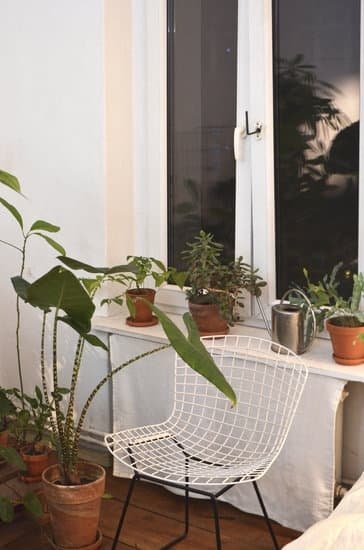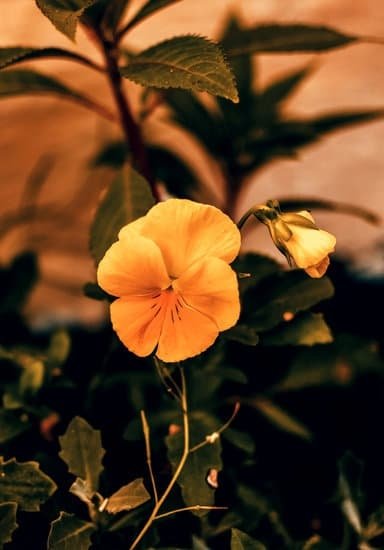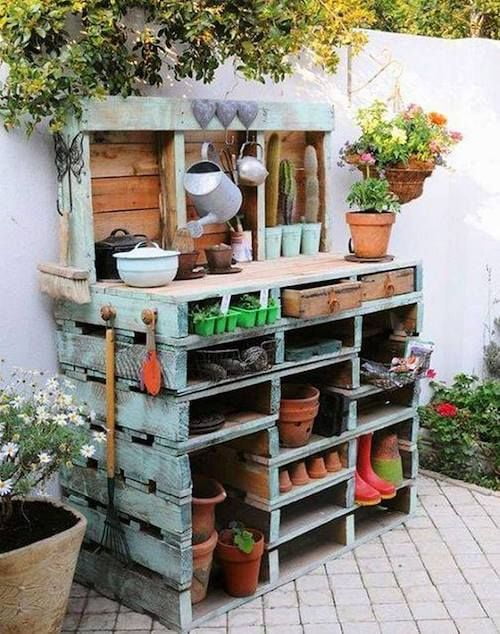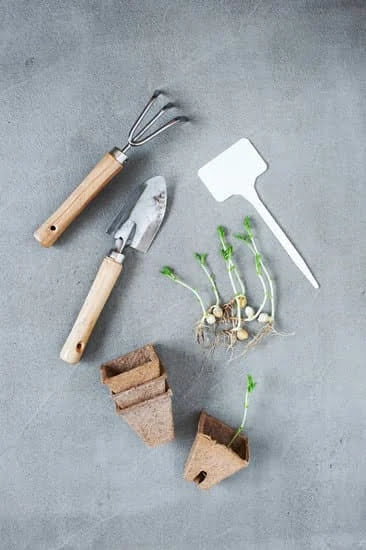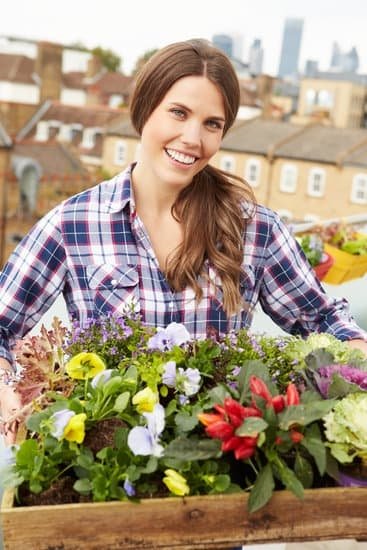Organic Gardening Tips And Plants
Organic gardening is a great way to improve your lifestyle while also taking care of the environment. By growing your own food you can be sure that you know where it came from and how it was grown. You can also be sure that no harmful chemicals were used in the process. In this article we will discuss some tips for organic gardening and also some plants that are well suited for organic gardens.
One of the most important tips for organic gardening is to use organic compost. Organic compost is made from organic matter, such as leaves, grass clippings, and vegetable scraps. It is a great way to improve the fertility of your soil and it also helps to control pests and diseases. You can make your own organic compost or you can buy it from a store.
Another important tip for organic gardening is to use organic pesticides. Organic pesticides are made from natural ingredients, such as plants, flowers, and minerals. They are a great way to control pests and diseases without using harmful chemicals. There are many different types of organic pesticides available, so you should be able to find one that fits your needs.
When it comes to choosing plants for your organic garden, choose plants that are hardy and resistant to pests and diseases. Hardy plants are plants that can survive in tough conditions, such as poor soil and drought. Resistant plants are plants that are resistant to pests and diseases. By choosing hardy and resistant plants, you can reduce the amount of pests and diseases in your garden.
Some good plants for organic gardens include tomatoes, peppers, lettuce, carrots, and broccoli. Tomatoes are a great choice because they are hardy and resistant to pests and diseases. They also produce a lot of fruit, which is great for canning or eating fresh. Peppers are also a good choice because they are hardy and resistant to pests and diseases. They also produce a lot of fruit, which can be used in sauces, stews, and salads. Lettuce is a great choice because it is hardy and resistant to pests and diseases. It also grows quickly, so you can have fresh lettuce all season long. Carrots are a great choice because they are hardy and resistant to pests and diseases. They also grow quickly, so you can have fresh carrots all season long. Broccoli is a great choice because it is hardy and resistant to pests and diseases. It also produces a lot of fruit, which can be used in salads, soups, and side dishes.
If you are new to organic gardening, start with a small garden. A small garden is easier to manage and takes less time to care for. You can also plant a variety of plants in a small garden, which will allow you to experiment with different types of plants. If you are not happy with the results, you can always expand your garden the following year.
Organic gardening is a great way to improve your lifestyle while also taking care of the environment. By growing your own food you can be sure that you know where it came from and how it was grown. You can also be sure that no harmful chemicals were used in the process. In this article we have discussed some tips for organic gardening and also some plants that are well suited for organic gardens.
Rose Plants Gardening Tips
When it comes to rose plants, there are a few things to keep in mind in order to have a successful garden. Roses are a beautiful addition to any garden, but they do require some care and attention. Here are some tips to help you get started.
1. Location, Location, Location
One of the most important things to consider when planting roses is the location. They need plenty of sunlight in order to grow and bloom properly. Make sure to place them in an area where they will receive at least six hours of sunlight each day.
2. Soil
Roses also need well-drained soil in order to thrive. If your garden soil is heavy and wet, you will need to add some compost or other organic matter to help improve drainage.
3. Water
Rose plants need plenty of water, especially during the summer months. Be sure to water them regularly, keeping the soil moist but not wet.
4. Fertilizer
Roses need regular fertilization in order to stay healthy. A good fertilizer for roses is one that is high in phosphorous and potassium. You can either use a commercial fertilizer or make your own by mixing one part fish emulsion with four parts water.
5. Pruning
Pruning is an important part of rose plant care. You should prune your roses annually, removing any dead or diseased branches. Pruning will also help keep the roses healthy and blooming.
With these tips in mind, you can help your rose plants thrive and bloom beautifully in your garden.
Rose Flower Plant Gardening Tips
A rose flower plant is one of the most popular plants grown in home gardens. Roses are incredibly versatile plants that can be used in a number of ways in the garden, from hedges to ground covers to specimen plants.
There are many different types of roses, from the classic hybrid tea roses to the more modern floribunda roses. No matter what type of rose you choose to grow, there are a few key things you need to know in order to keep your plants looking their best.
Roses need plenty of sunlight in order to bloom well. They should be planted in a location where they will receive at least six hours of direct sunlight each day.
Roses also need well-drained soil. If your soil is heavy and doesn’t drain well, mix in some organic matter such as compost or peat moss to help improve drainage.
In order to keep roses healthy, it’s important to fertilize them regularly. A good organic fertilizer such as fish emulsion or compost tea can be used once a month during the growing season.
Roses need regular pruning in order to keep them healthy and looking their best. Prune them in late winter or early spring, before new growth begins. Remove any dead or diseased branches, and prune the plants so that they are shaped the way you want them.
If you follow these tips, your rose plants will be healthy and blooming all summer long!
Plants And Gardening Tips
For Novices
Anyone who is interested in plants and gardening will find that there is a lot to learn. Even experienced gardeners are always learning something new about plants and gardening. This article will provide some basic information about plants and gardening for novices.
When planting a garden, be sure to choose plants that are suitable for the climate. If you live in a hot climate, choose plants that are suited for a hot climate. If you live in a cold climate, choose plants that are suited for a cold climate. If you live in a humid climate, choose plants that are suited for a humid climate. Choosing the wrong plants will result in poor growth and/or death of the plants.
When planting a garden, be sure to water the plants regularly. Most plants need at least an inch of water per week. Dry soil will not support healthy plants. Wet soil will cause the plants to rot. Be sure to water the plants in your garden regularly, especially during hot weather.
When planting a garden, be sure to use organic matter in the soil. Organic matter will improve the soil quality and help the plants grow better. You can add organic matter to the soil by composting or by using mulch. Compost is made from organic matter that has been decomposed. Mulch is made from organic matter that has been shredded.
When planting a garden, be sure to use the right type of soil. Not all soils are suited for gardening. You can buy soil from a garden center, or you can make your own soil by mixing compost with soil from your garden. Be sure to use the right type of soil for the type of plants you are growing.
When planting a garden, be sure to use the right type of fertilizer. Not all fertilizers are suited for gardening. You can buy fertilizer from a garden center, or you can make your own fertilizer by mixing compost with soil from your garden. Be sure to use the right type of fertilizer for the type of plants you are growing.
When planting a garden, be sure to use the right type of plant food. Not all plant foods are suited for gardening. You can buy plant food from a garden center, or you can make your own plant food by mixing compost with water. Be sure to use the right type of plant food for the type of plants you are growing.
When planting a garden, be sure to use the right type of plant. Not all plants are suited for gardening. You can buy plants from a garden center, or you can make your own plants by growing them from seeds. Be sure to use the right type of plant for the type of soil you are using.
When planting a garden, be sure to use the right type of plant pot. Not all plant pots are suited for gardening. You can buy plant pots from a garden center, or you can make your own plant pots by using recycled materials. Be sure to use the right type of plant pot for the type of plants you are growing.
Gardening Tips From A Man Who Is Afraid Of Plants
Hello, everyone! I’m a man who is afraid of plants. I’m not exactly sure why, but for as long as I can remember, I’ve been absolutely petrified of anything that has green leaves and/or a stem. It might have something to do with the fact that I was always getting poked in the eye by my mom’s ivy, or that my great-grandma’s garden was always full of snakes, but I honestly can’t say for sure.
Anyway, that’s why I’m writing this blog post — to share some of the gardening tips and tricks that I’ve learned over the years, despite my fear of plants.
1. Start small. If you’re like me, and you’re scared of plants, then start small. Don’t try to tackle a huge garden full of roses and daisies on your first try. Start with some easy-to-grow plants, like tomatoes or cucumbers, and work your way up from there.
2. Don’t be afraid to ask for help. If you’re not sure how to care for a particular plant, don’t be afraid to ask someone else for help. There are plenty of gardening experts out there who would be more than happy to offer you some advice.
3. Use containers. If you’re scared of plants, then using containers can be a great way to avoid them. You can plant flowers, vegetables, or herbs in containers on your porch, on your patio, or even in your backyard.
4. Use plants that are non-toxic. If you have small children or pets, it’s important to use plants that are non-toxic. Some common non-toxic plants include ivy, bamboo, and English ivy.
5. Start with easy-to-grow plants. As I mentioned earlier, start with easy-to-grow plants. There are plenty of plants that are both easy to care for and non-toxic, so you don’t have to worry about making any mistakes.
6. Get to know your plants. It’s important to get to know your plants, so you can better understand how to care for them. Each plant has its own unique needs, so it’s important to take the time to learn about them.
7. Use pesticides sparingly. If you’re scared of plants, then it’s important to use pesticides sparingly. Pesticides can be harmful to both plants and humans, so it’s important to use them only when necessary.
8. Be patient. Gardening can be a slow process, so be patient. It may take a while for your plants to grow and flourish, but if you take care of them and provide them with the right nutrients, they will eventually thrive.
9. Have fun. Gardening can be a lot of fun, so don’t be afraid to let your creative side loose. Experiment with different plants, colors, and textures. You may be surprised at what you can come up with.
10. Don’t be afraid to ask for help. As I mentioned earlier, don’t be afraid to ask for help if you need it. There are plenty of gardening experts out there who would be more than happy to offer you some advice.

Welcome to my gardening blog! I am passionate about plants and enjoy sharing my knowledge and experiences with others. In this blog, I will write about everything related to gardening, from tips on how to get started to updates on my own garden projects.

